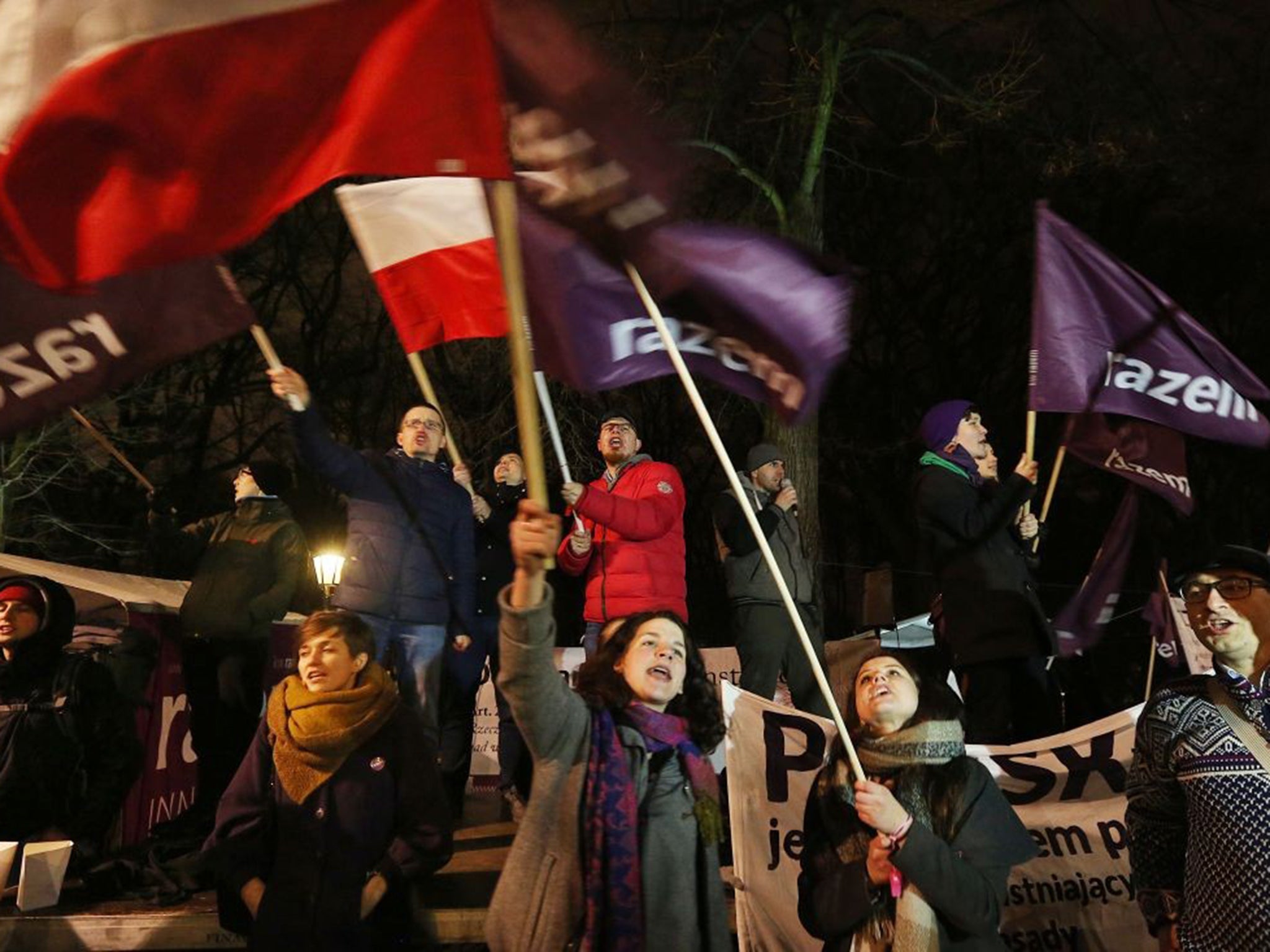Polish constitutional crisis grows as rights watchdog attacks reforms
Council of Europe panel condemns measures by new government to ‘cripple’ constitutional court and ‘undermine democracy’

Your support helps us to tell the story
From reproductive rights to climate change to Big Tech, The Independent is on the ground when the story is developing. Whether it's investigating the financials of Elon Musk's pro-Trump PAC or producing our latest documentary, 'The A Word', which shines a light on the American women fighting for reproductive rights, we know how important it is to parse out the facts from the messaging.
At such a critical moment in US history, we need reporters on the ground. Your donation allows us to keep sending journalists to speak to both sides of the story.
The Independent is trusted by Americans across the entire political spectrum. And unlike many other quality news outlets, we choose not to lock Americans out of our reporting and analysis with paywalls. We believe quality journalism should be available to everyone, paid for by those who can afford it.
Your support makes all the difference.Poland’s constitutional crisis deepened yesterday after a European human rights watchdog condemned democratic backsliding in the country, accusing the conservative government of crippling its top court.
The Venice Commission, a panel within the 47-member Council of Europe, warned that if the government continued reforms “crippling” Poland’s Constitutional Tribunal, it would “undermine democracy, human rights and the rule of law”.
Although non-binding, the report is expected to trigger a new battle between Warsaw and the rest of the European Union. The European Commission (EC) started its own “rule of law” investigation into the reforms in January, and pledged to take in the Venice Commission’s findings. An EC spokesman said yesterday it would review the panel’s report next month, paving the way for sanctions.
Tensions have risen between Warsaw and much of the EU establishment since the Law and Justice (PiS) party won elections in October. The new government pushed through drastic reforms, asserting political control over the high court and public broadcaster.
The Venice Commission focused mainly on the Constitutional Court, after the reforms last year stacked it with friendly judges and made it harder to overturn or challenge legislation. The report confirmed criticisms from human rights groups that the changes would paralyse the court’s work.
“A high attendance quorum, the requirement of two thirds majority for adopting judgments and a strict rule making it impossible to deal with urgent cases . . . would have made the tribunal ineffective,” the panel concluded. “Therefore, these amendments would have endangered not only the rule of law but also the functioning of the democratic system.”
Polish officials gave a mixed response to the report, with Konrad Szymanski, Deputy Foreign Minister, saying the government would respect the recommendations. However, before the report was released, Jaroslaw Kaczynski, leader of the PiS, said criticism amounted to “foreign institutions” seeking to undermine the “dignity” of his countrymen. “We will be solving Polish matters and disputes on our own,” he told a party rally. Witold Waszczykowsk, the Foreign Minister, has pledged to challenge the findings.
Poland’s Constitutional Court ruled that the changes were illegal and breached its independence, but Beata Szydlo, the Prime Minister, has said she will ignore that judgment. Mr Waszczykowsk said the head of the court, Justice Andrzej Rzeplinski, “increasingly reminds me of an Iranian ayatollah”. Mr Rzeplinski had said the court found many sections of a law passed in December were “non-compliant with the Polish constitution”.
There has also been criticism from Washington, where officials have said Poland should abide by the Venice Commission recommendations. “We are alarmed about what is happening as regards the rule of law in Poland,” John Kirby, State Department spokesman, said. “We hope a solution to the current dispute will be found that conforms to Poland’s constitution, maintains democratic checks and balances, and meets the highest international standards.”
Join our commenting forum
Join thought-provoking conversations, follow other Independent readers and see their replies
Comments